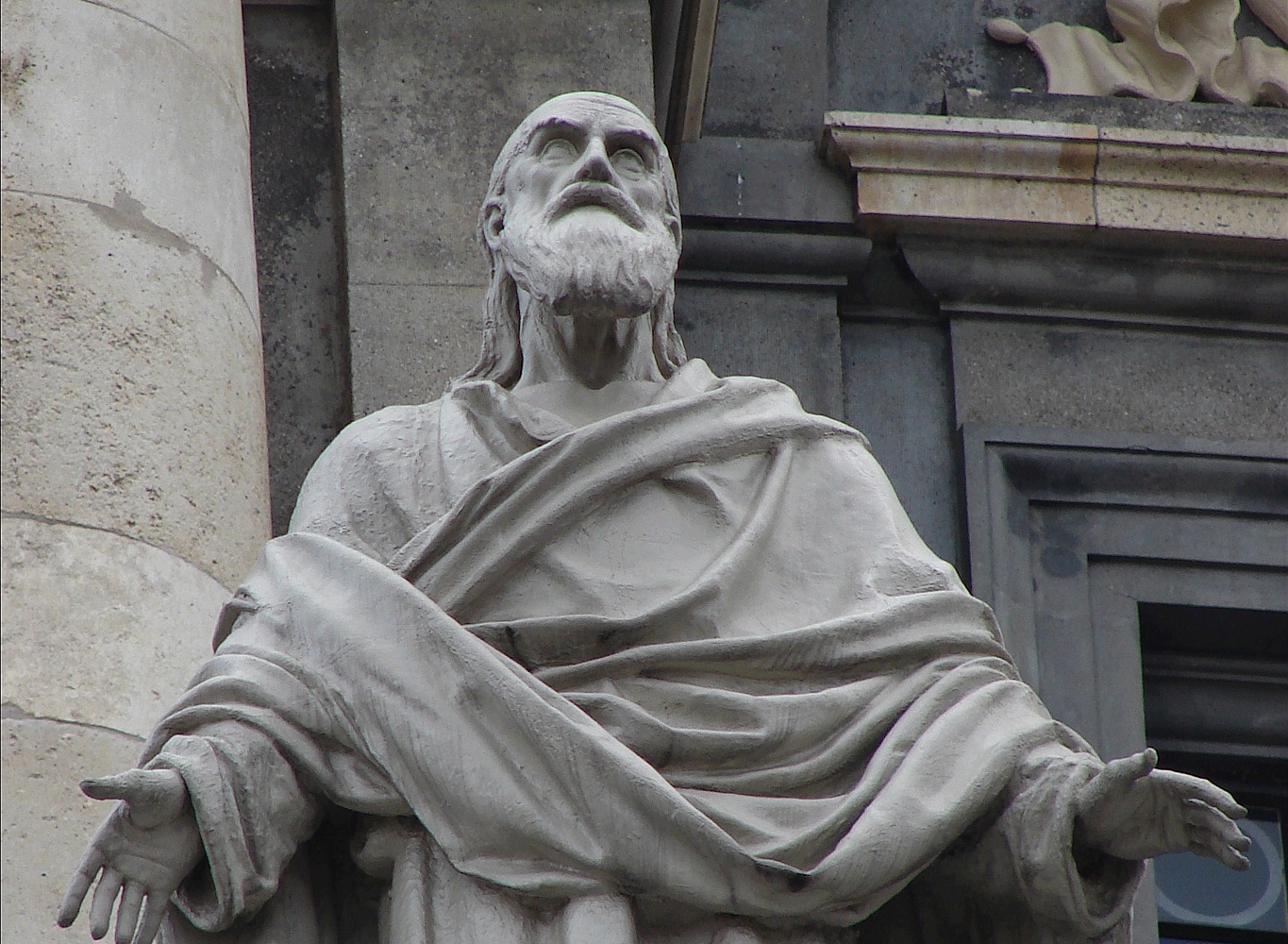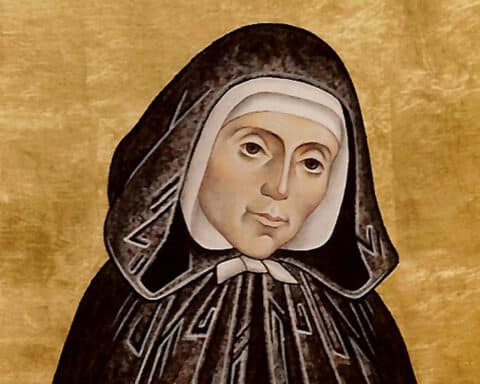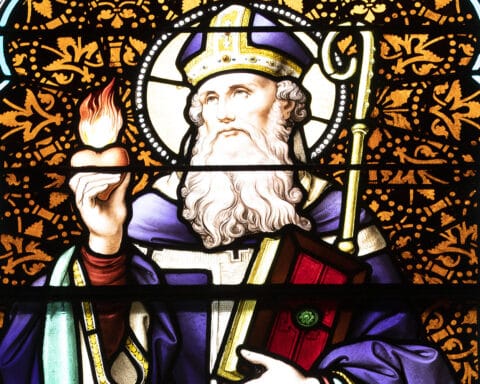St. Polycarp, Bishop and Martyr
Feast day: February 23
“Polycarp, be courageous, and act manfully.”
No one saw the speaker, but Christians nearby heard these words spoken at the time St. Polycarp was on trial for being a Christian in A.D.155.
The proconsul demanded, “Swear by the genius of Caesar, and I discharge you; blaspheme Christ.” But St. Polycarp replied, “I have served him these fourscore and six years, and he never did me any harm, but much good, and how can I blaspheme my King and my Saviour? If you require of me to swear by the genius of Caesar, as you call it, hear my free confession — I am a Christian; but if you desire to learn the Christian religion, appoint a time, and hear me.”
This is the courage of St. Polycarp at the moment of his martyrdom. Born in A.D. 69 and a disciple of St. John the Apostle, St. Polycarp was ordained the Bishop of Smyrna by St. John and was known for faithfully preserving the doctrine of the Apostles, for spreading the Gospel among the pagans, and for fighting heresies. His pupil St. Irenaeus, who would later become Bishop of Lyon, described St. Polycarp as a patient and lovable preacher, with great solicitude for widows and slaves.
A friend of St. Ignatius of Antioch, St. Polycarp welcomed and encouraged Ignatius on his way to Rome, under escort, to be judged. Of the seven letters that St. Ignatius addressed to the churches along the way, the first four start from Smyrna and include a description of St. Polycarp as a good pastor and fighter for the cause of Christ. The Philippians asked St. Polycarp to collect the letters of St. Ignatius for them, and he did, adding his own letter in which he urges them to serve and fear God, to believe in him, to hope in the Resurrection and to walk in the path of justice, always having before their eyes the example of the martyrs, particularly St. Ignatius himself.
In his letter to the Philippians, St. Polycarp defends the Incarnation and the death and resurrection of Christ against gnostic heretical claims that they were all imaginary phenomena of purely moral or mythological significance. He also emphasizes the importance of St. Paul as a primary authority of the Christian Church. St. Polycarp notes further that to be raised with Christ in glory, we must also do his will, keep all his commandments and love whatever he loved by refraining from all fraud, avarice, detraction and rash judgment, by repaying evil with good and forgiving and showing mercy to others so that we may find mercy. He warns us to be watchful always in prayer, lest we be led into temptation, to be constant in fasting, persevering, joyful in hope, and to be imitators of Christ’s patience since by suffering for his name, we glorify him.
At his martyrdom, St. Polycarp was pierced with a spear after an attempt to burn him at the stake failed since he remained unharmed as the flames never touched him.
Reflection
Dear God, help me to be constant in prayer that I may be a stalwart defender of Christ like St. Polycarp. Help me to value good friendships, which provide strength for all members to live a life of love and joy for Christ.
Prayer
God of all creation,
who were pleased to give the Bishop Saint Polycarp
a place in the company of the Martyrs,
grant, through his intercession,
that, sharing with him in the chalice of Christ,
we may rise through the Holy Spirit to eternal life.
Through our Lord Jesus Christ, your Son,
who lives and reigns with you in the unity of the Holy Spirit,
God, for ever and ever.





